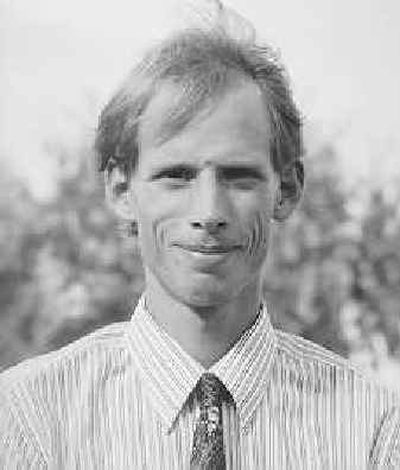If hard work matters, Hubbard’s a shoo-in

Some Olympic aspirants take a year off from school or work to devote full days to their dream.
Jason Hubbard wound up taking a year off from training, just so he could afford to keep training.
“It’s not like other sports where the worst guy still makes $50,000 or $100,000,” said Hubbard, a 1993 graduate of Colville High School. “Our best guys make $50,000 to $100,000 a year. And people like me, who are just decent, still have to work 30 hours a week, and that takes a toll on both your training and your recovery.”
So in 2003 – a rather crucial preamble to an Olympic year – Hubbard shut down his distance running career and went to work full time in tech support for Hewlett-Packard in Colorado Springs, resuming his workouts last December.
“I gave up a good job to train again,” he laughed.
At least it was good training. In mid-April at the Mt. SAC Relays, Hubbard cruised to his fastest time ever in the 10,000 meters, 28 minutes, 30.65 seconds, to qualify for the Olympic Trials that begin this week in Sacramento. With the 17th best time in a field of 24, Hubbard is a long shot for one of the three spots – and, indeed, would have to slash another 41 seconds off his best to reach the “A” standard necessary to earn a trip to Athens. Also working against him is a hip injury that forced him to stop running for 3 1/2 weeks after his qualifying race.
But the fact is, Hubbard was a long shot to get this far. Enrolling at Eastern Washington University after high school, he bailed after just one year because he “wasn’t ready for college” – neither the increased training mileage or the academic pursuits. He served three years in the Air Force in Colorado before returning to school at Adams State, where he won a pair of NCAA Division II titles on the track and was a 10-time All-American.
Then he waded into the hardscrabble world of post-collegiate competition, where making ends meet is as challenging as an Olympic final. He did manage to land a spot on the running team subsidized by Hanson’s in 2002 – though the money ran out before he could go to nationals.
Now he works 30-some hours a week as an advertising consultant and gets some sponsorship from the Native American Sports Council, since he’s one-half Salish-Kootenai.
“Going to the Trials is one of those lifetime goals,” he said. “There are guys like Meb Keflezighi and Abdi (Abdirahman) who have a better chance than I do, but I’m going with the goal of placing high. And I don’t think of it as my last chance, or my last race.
– John Blanchette